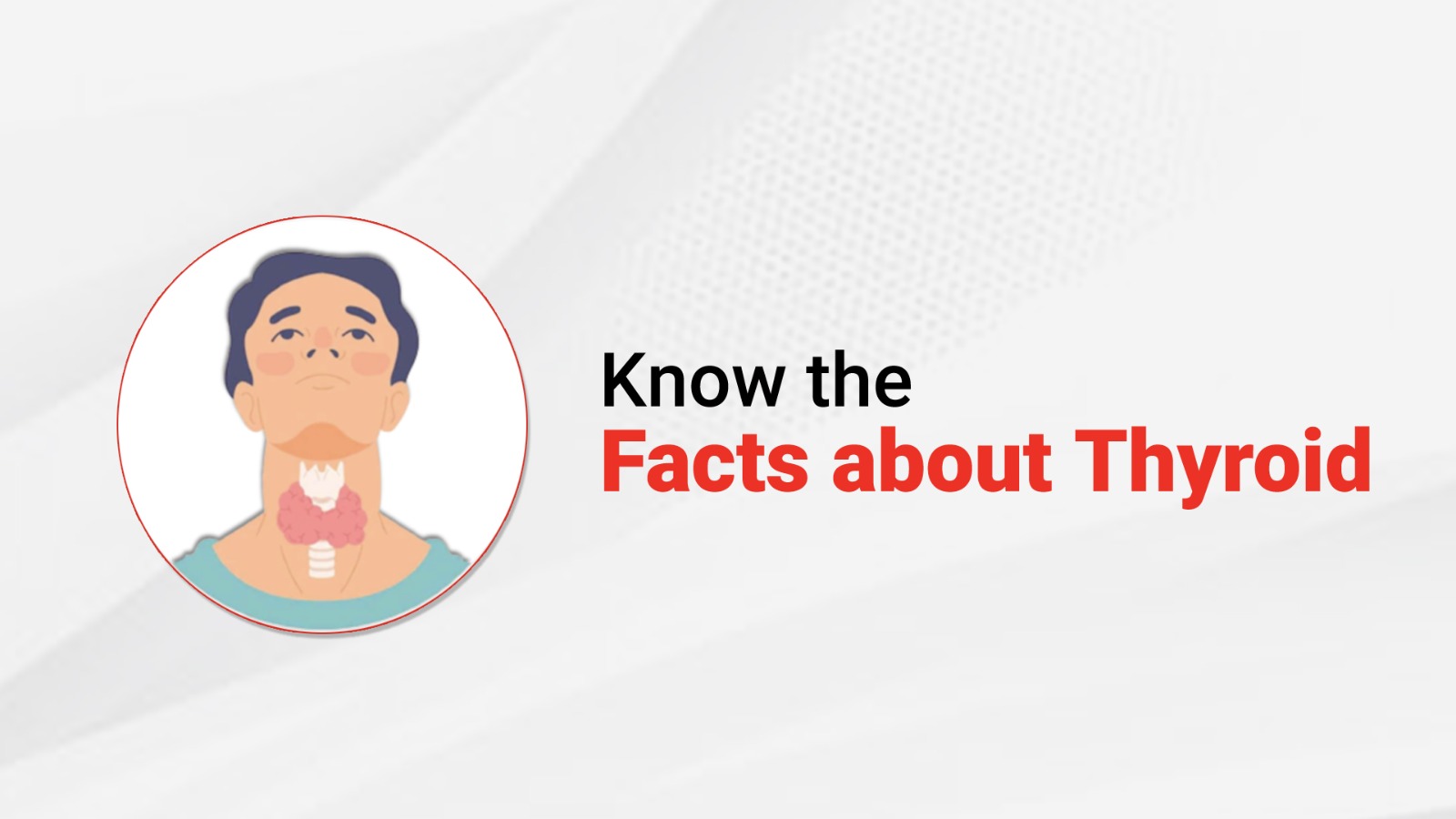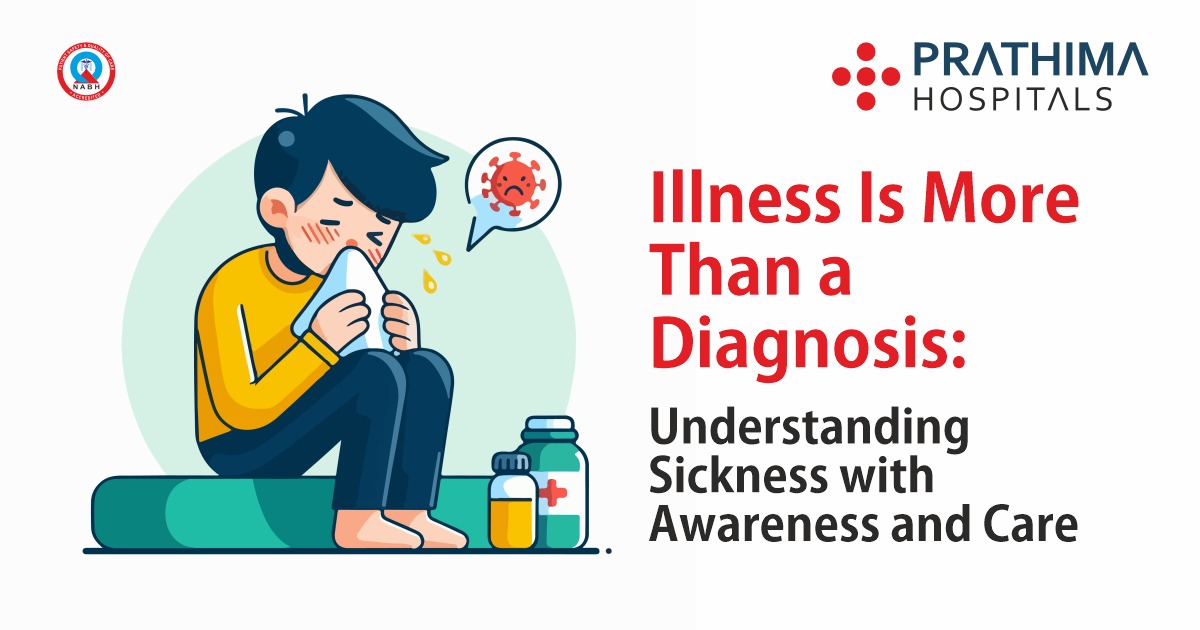Is Thyroid a Serious Problem ?

A full picture of Thyroid
Introduction:
The thyroid gland is an important endocrine gland located in the neck, responsible for producing and releasing hormones that regulate metabolism, heart rate, and body temperature. As per the Department of General Medicine in Hyderabad, Thyroid disease refers to any condition that affects the structure or function of the thyroid gland, leading to abnormal levels of thyroid hormones in the body. In this article, we will discuss the types, causes, symptoms, diagnosis, and treatment of thyroid diseases in detail.
Types of Thyroid Diseases:
There are different types of thyroid disorders, as follows:
Hypothyroidism:
As a consequence of hypothyroidism, the thyroid gland produces insufficient thyroid hormones, which leads to a slower metabolism. Most hypothyroidism occurs as a result of an autoimmune disease called Hashimoto’s thyroiditis, in which the immune system attacks the thyroid gland and damages it. Other causes include radiation therapy, surgery to remove the thyroid gland, certain medications, and iodine deficiency. Symptoms of hypothyroidism include fatigue, weight gain, cold intolerance, constipation, dry skin, hair loss, and depression.
Hyperthyroidism:
Generally, hyperthyroidism results in a fast metabolism due to excessive thyroid hormone production. An autoimmune disorder called Graves’ disease is the leading cause of hyperthyroidism, in which the thyroid gland produces too many hormones in response to antibodies produced by the immune system. Other causes include thyroid nodules, thyroiditis, and certain medications. Symptoms of hyperthyroidism include weight loss, heat intolerance, sweating, palpitations, nervousness, irritability, and diarrhoea.
Thyroid Nodules:
Thyroid nodules are lumps or abnormal growths that form within the thyroid gland. Most thyroid nodules are benign and do not cause any symptoms, but some may produce excess thyroid hormone, leading to hyperthyroidism. Rarely, thyroid nodules may be cancerous. The cause of thyroid nodules is not well understood, but risk factors include being female, older age, radiation exposure, and family history of thyroid nodules or cancer.
Thyroid Cancer:
The thyroid gland is affected by thyroid cancer, a rare type of cancer. The most common type of thyroid cancer is papillary thyroid cancer, which is usually slow-growing and has a good prognosis. Other types of thyroid cancer include follicular thyroid cancer, medullary thyroid cancer, and anaplastic thyroid cancer, which are less common and more aggressive. Risk factors for thyroid cancer include exposure to radiation, family history of thyroid cancer, and certain genetic syndromes.
Causes of Thyroid Diseases:
The causes of thyroid diseases vary depending on the type of disease. Some of the common causes include:
Autoimmune Disorders:
Autoimmune disorders occur when the body’s immune system attacks its tissues, mistaking them for foreign invaders. Two common autoimmune disorders that can affect the thyroid gland are Graves’ disease and Hashimoto’s thyroiditis.
Graves’ disease is characterized by an overactive thyroid gland that produces too much thyroid hormone. This condition is caused by the production of antibodies that stimulate the thyroid gland, resulting in excessive thyroid hormone production. Graves’ disease can lead to hyperthyroidism, which can cause a range of symptoms such as weight loss, rapid heartbeat, and nervousness.
Hashimoto’s thyroiditis is an autoimmune disorder that leads to an underactive thyroid gland, or hypothyroidism. In this condition, the body’s immune system attacks the thyroid gland, damaging its ability to produce thyroid hormones. Hashimoto’s thyroiditis can cause symptoms such as fatigue, weight gain, and depression.
Genetic Factors:
Some thyroid diseases may have a genetic component, meaning that they can be inherited from one or both parents. For example, some rare genetic conditions such as familial medullary thyroid cancer and multiple endocrine neoplasia (MEN) can cause thyroid cancer.
Environmental Factors:
Exposure to certain environmental factors, such as radiation, can increase the risk of developing thyroid diseases. Radiation exposure can damage the thyroid gland and increase the risk of developing thyroid cancer. This risk is particularly high in individuals who were exposed to radiation during childhood or adolescence.
Medications:
Certain medications can also affect the function of the thyroid gland. For example, lithium, a medication used to treat bipolar disorder, can cause hypothyroidism in some individuals. Amiodarone, a medication used to treat heart arrhythmias, can cause both hyperthyroidism and hypothyroidism.
Iodine Deficiency or Excess:
The thyroid hormone is produced with the help of iodine, an essential nutrient. Thyroid diseases can be caused by either a lack of iodine or an excess of it. Iodine deficiency is a common cause of hypothyroidism in developing countries. On the other hand, excessive iodine intake can cause hyperthyroidism, particularly in individuals with underlying thyroid disorders.
Other Causes:
Other factors that can increase the risk of developing thyroid diseases as per Dr. Sridhar Vennamaneni the General physician in KPHB, include age, sex, and pregnancy. Women are more likely than men to develop thyroid diseases, and pregnancy can cause temporary changes in thyroid function, leading to a condition known as gestational thyroiditis.
Symptoms of Thyroid Diseases:
The symptoms of thyroid diseases vary depending on the type of disease and the severity of the condition. Some common symptoms include:
Hypothyroidism: Fatigue, weight gain, cold intolerance, constipation, dry skin, hair loss, depression, joint pain, and muscle weakness.
Hyperthyroidism: Weight loss, heat intolerance, sweating, palpitations, nervousness, irritability, diarrhoea, muscle weakness, and trembling hands.
Thyroid Nodules: No symptoms are usually associated with thyroid nodules. However, some nodules may produce excess thyroid hormone, leading to hyperthyroidism. In rare cases, thyroid nodules may cause difficulty swallowing or breathing if they grow large enough to press on the windpipe or oesophagus.
Thyroid Cancer: Most thyroid cancers do not cause any symptoms in the early stages. As the cancer grows, it may cause a lump or swelling in the neck, hoarseness, difficulty swallowing or breathing, and enlarged lymph nodes in the neck.
Diagnosis of Thyroid Diseases:
As per the Dr. Anish Kolly of Endocrinologist in Kachiguda, diagnosing thyroid diseases typically involves a combination of medical history, physical examination, and laboratory tests. In some cases, imaging studies or biopsies may also be necessary. In this section, we will discuss the various diagnostic methods used to diagnose thyroid diseases in detail.
Medical History and Physical Examination:
The first step in diagnosing thyroid diseases is usually a comprehensive medical history and physical examination. During the physical examination, the General Physician in Hyderabad will check for any signs of thyroid dysfunction, such as enlargement of the thyroid gland (goitre) or abnormal thyroid nodules. They may also check for other signs and symptoms of thyroid disorders, such as changes in heart rate, tremors, and weight changes.
The medical history will include questions about any symptoms the patient may be experiencing, family history of thyroid disease, past medical history, and medication use. This information helps the General physician in Kachiguda to determine the underlying cause of the thyroid disease and develop an appropriate treatment plan.
Laboratory Tests:
Blood tests are commonly used to diagnose thyroid diseases. These tests measure the levels of thyroid hormones (T3, T4) and thyroid-stimulating hormone (TSH) in the blood. Abnormal levels of these hormones can indicate hyperthyroidism or hypothyroidism.
In addition to measuring thyroid hormone levels, antibody tests may also be performed to detect the presence of autoimmune disorders such as Graves’ disease or Hashimoto’s thyroiditis.
Imaging Studies:
Imaging studies may be necessary to evaluate the size and shape of the thyroid gland and detect any abnormalities. The thyroid gland is imaged using ultrasound, a technique that uses high-frequency sound waves. Ultrasound can detect the presence of nodules, cysts, and tumours in the thyroid gland.
Other imaging studies, such as CT scans and MRI scans, may also be used to evaluate the thyroid gland and surrounding structures in more detail.
Biopsy:
If a nodule or tumour is detected in the thyroid gland, a biopsy may be necessary to determine if it is cancerous. A biopsy involves the removal of a small sample of tissue from the nodule or tumour, which is then examined under a microscope to determine if it is cancerous.
Treatment of Thyroid Diseases:
As per the Department of General Medicine in Kukatpally, the treatment of thyroid diseases depends on the type and severity of the condition.
Hypothyroidism: Hypothyroidism is typically treated with synthetic thyroid hormone replacement therapy, which involves taking a daily dose of levothyroxine. This medication helps to restore normal levels of thyroid hormones in the body and can alleviate the symptoms of hypothyroidism.
Hyperthyroidism: The treatment of hyperthyroidism depends on the underlying cause. Graves’ disease is typically treated with medications that block the production of thyroid hormones or reduce the activity of the thyroid gland. Radioactive iodine therapy may also be used to destroy the thyroid gland and reduce the production of thyroid hormones. The thyroid gland may need to be surgically removed in some cases.
Thyroid Nodules: Most thyroid nodules do not require treatment, especially if they are small and not producing excess thyroid hormone. However, if a nodule is causing hyperthyroidism or is suspicious of cancer, it may need to be removed surgically.
Thyroid Cancer: The treatment of thyroid cancer typically involves surgery to remove the thyroid gland, followed by radioactive iodine therapy to destroy any remaining cancer cells. In some cases, external radiation therapy or chemotherapy may be necessary.
Conclusion:
Millions of people around the world suffer from thyroid disease. The thyroid gland plays an important role in regulating metabolism, heart rate, and body temperature, and any disruption in its function can lead to a range of symptoms and health problems. Fortunately, most thyroid diseases are treatable, and with early diagnosis and proper management, many people with thyroid disease can lead healthy, productive lives. If you experience any symptoms of thyroid disease, it is important to talk to your General physician in Kukatpally and undergo appropriate testing and evaluation.
.
.
.
.
For more details :
📞:: 733 733 6600 | 040 4345 4345
🌐:: www.prathimahospitals.com






Warning: Undefined variable $req in /home/u885608126/domains/prathimahospitals.com/public_html/wp-content/themes/prathimahospitals/functions.php on line 294
Warning: Undefined variable $commenter in /home/u885608126/domains/prathimahospitals.com/public_html/wp-content/themes/prathimahospitals/functions.php on line 295
Warning: Trying to access array offset on value of type null in /home/u885608126/domains/prathimahospitals.com/public_html/wp-content/themes/prathimahospitals/functions.php on line 295
Warning: Undefined variable $aria_req in /home/u885608126/domains/prathimahospitals.com/public_html/wp-content/themes/prathimahospitals/functions.php on line 295
Warning: Undefined variable $req in /home/u885608126/domains/prathimahospitals.com/public_html/wp-content/themes/prathimahospitals/functions.php on line 298
Warning: Undefined variable $commenter in /home/u885608126/domains/prathimahospitals.com/public_html/wp-content/themes/prathimahospitals/functions.php on line 299
Warning: Trying to access array offset on value of type null in /home/u885608126/domains/prathimahospitals.com/public_html/wp-content/themes/prathimahospitals/functions.php on line 299
Warning: Undefined variable $aria_req in /home/u885608126/domains/prathimahospitals.com/public_html/wp-content/themes/prathimahospitals/functions.php on line 300
Warning: Undefined variable $commenter in /home/u885608126/domains/prathimahospitals.com/public_html/wp-content/themes/prathimahospitals/functions.php on line 303
Warning: Trying to access array offset on value of type null in /home/u885608126/domains/prathimahospitals.com/public_html/wp-content/themes/prathimahospitals/functions.php on line 303